Axle Shaft Oil Seal Replacement Right Side
Tools Required
| • | SA91113T Axle Seal Installer |
| • | SA9132S Axle Seal Puller |
| • | SA9133T Lower Control Arm Stud Separator |
Removal Procedure
- Position the vehicle on the hoist.
- Raise the vehicle. Refer to Lifting and Jacking the Vehicle in General Information.
- Remove the right front wheel.
- Drain the transaxle fluid.
- Remove the cotter pin from the lower ball joint and discard. Loosen the nut and back the nut off until the top of nut is even with the top of the threads.
- Separate the ball joint from the steering knuckle Figure 2 and remove the nut.
- Separate the right axle from the intermediate shaft.
- On the DOHC (LL0) engine, remove the intake bracket to intake bolt.
- Remove the intake bracket to intermediate shaft support nut.
- Remove the 2 intermediate shaft to engine block bolts.
- Carefully slide the intermediate shaft out of the transaxle.
- Remove the engine to transaxle stiffening brace bolts and remove the brace.
- Remove the three flywheel housing dust cover bolts and remove the dust cover.
- Remove the axle seal using SA9133T .
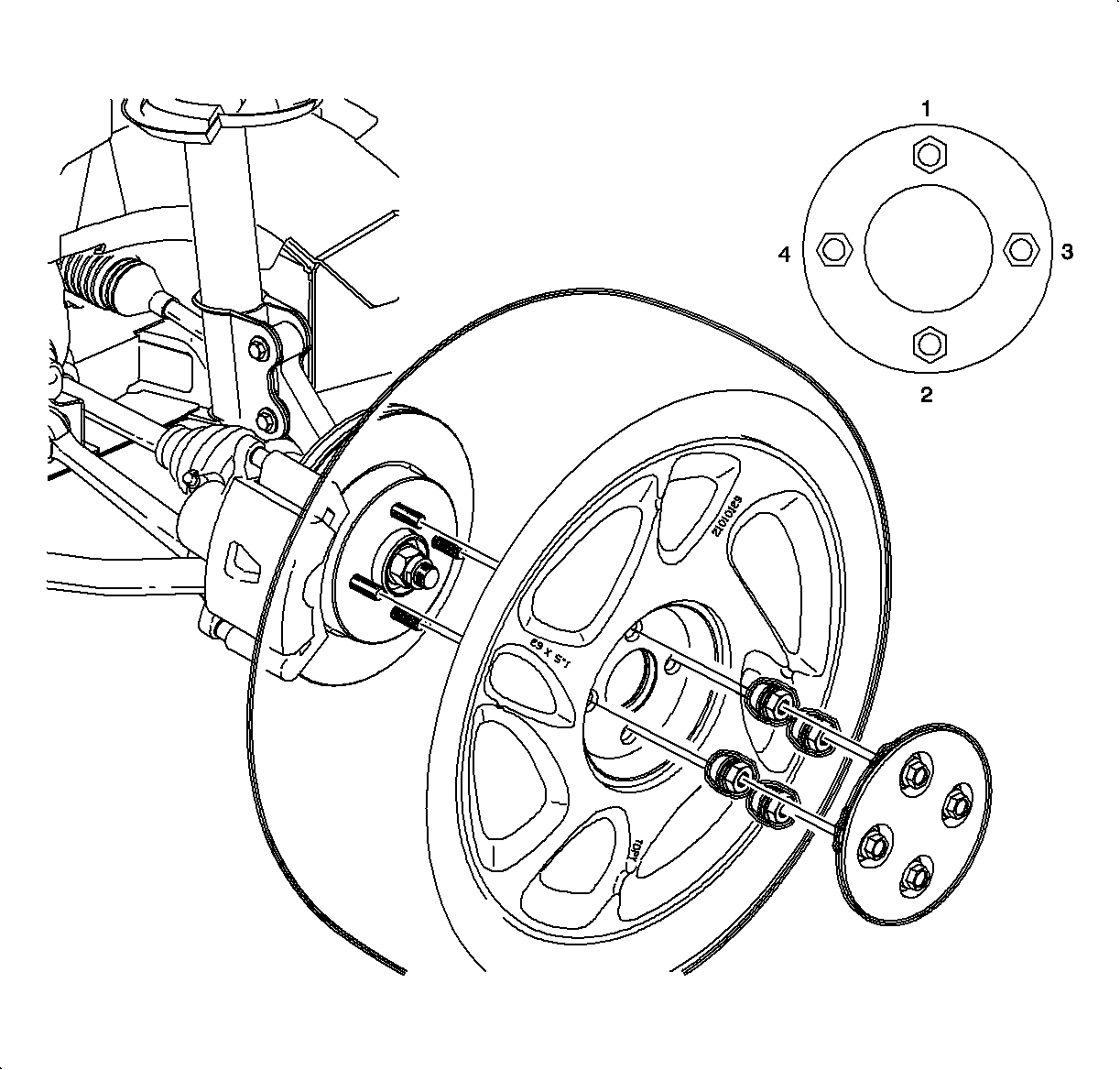
Caution: Refer to Vehicle Lifting Caution in the Preface section.
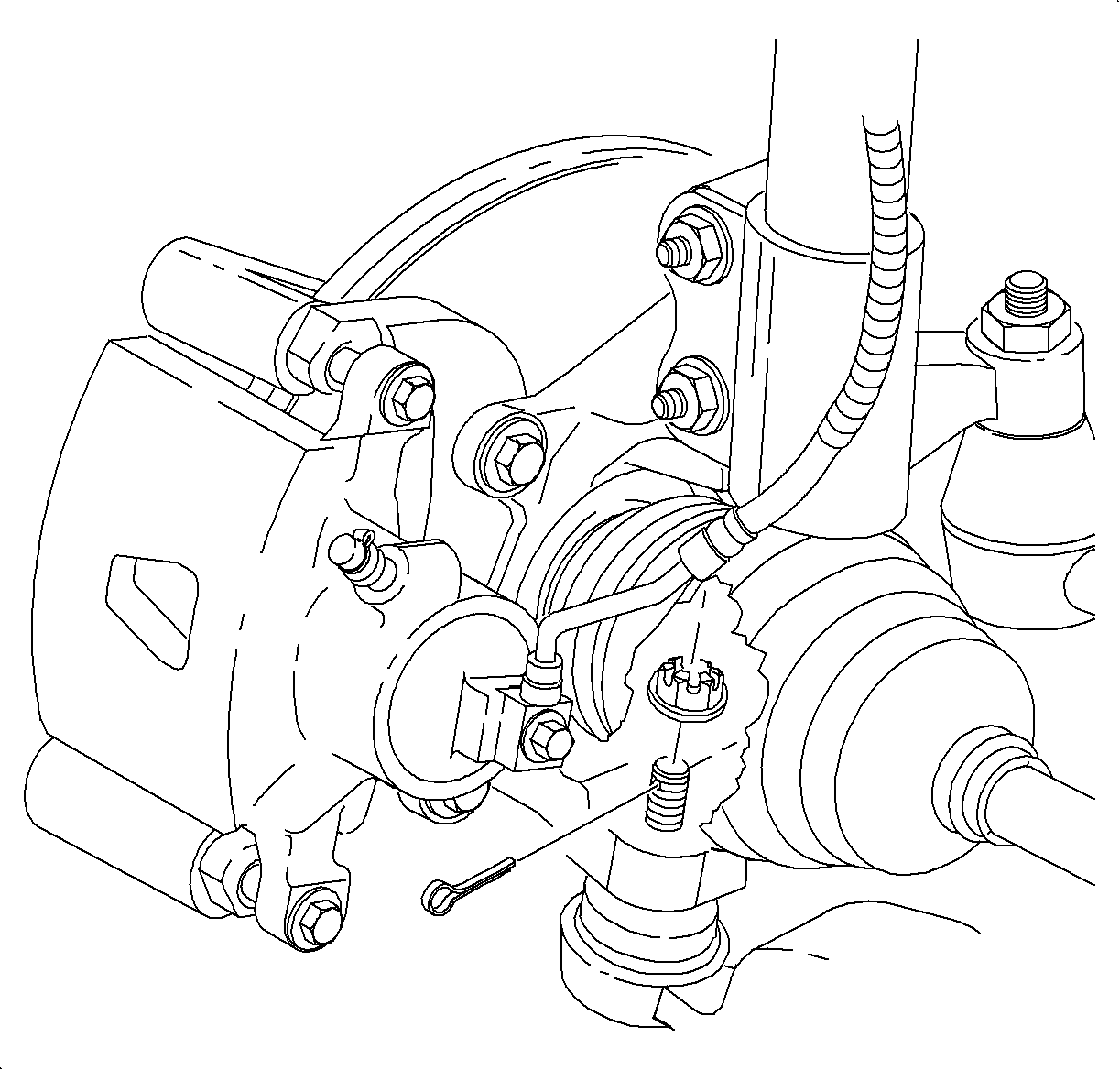
Notice: On ABS equipped vehicles, the outer CV joint has a speed sensor ring. Using the incorrect tool or procedure to separate the control arm from the knuckle can damage the ring, resulting in a loss of ABS operation.
Notice: Do not attempt to separate the joint using a wedge-type tool because seal may be damaged.
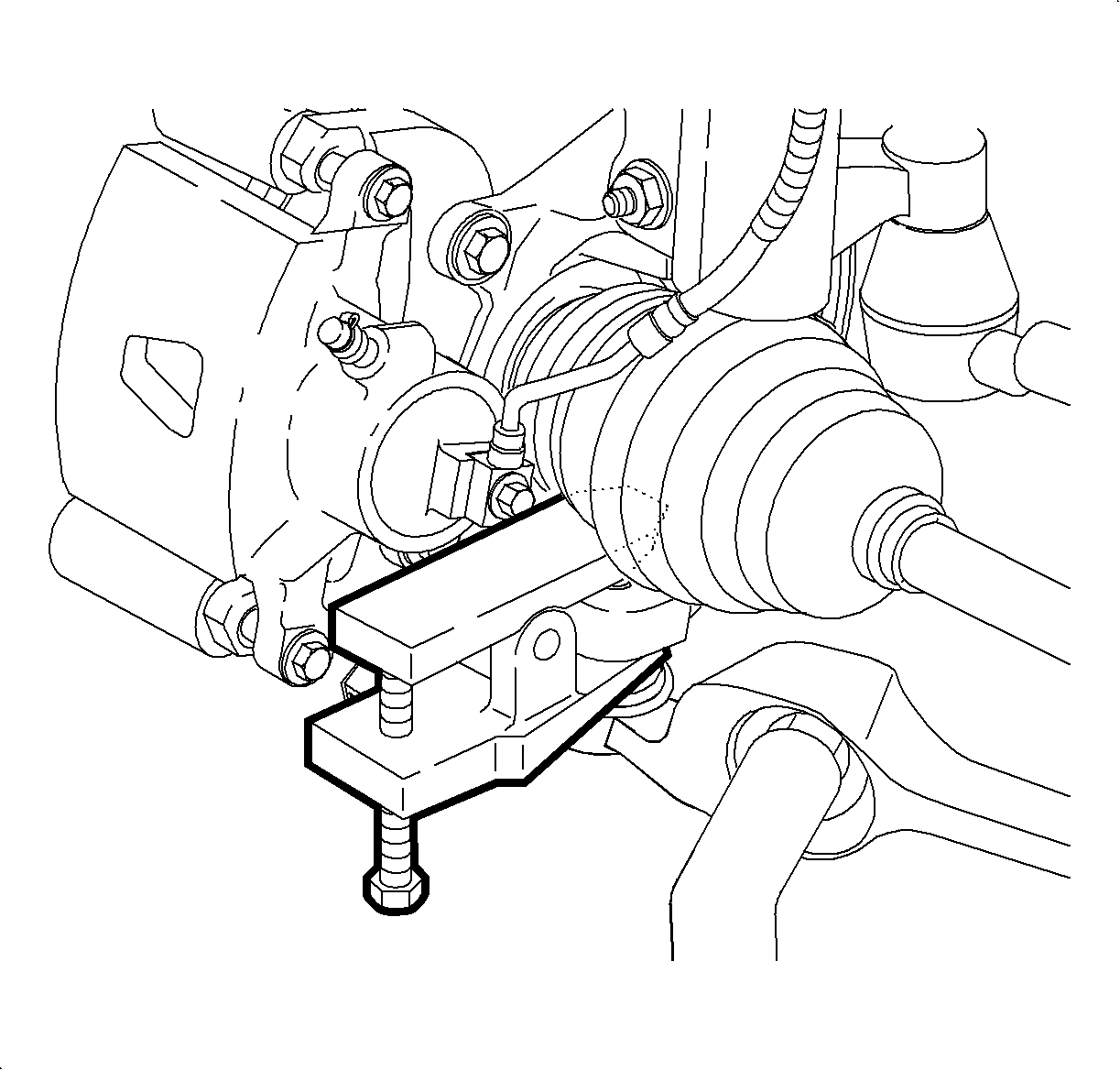
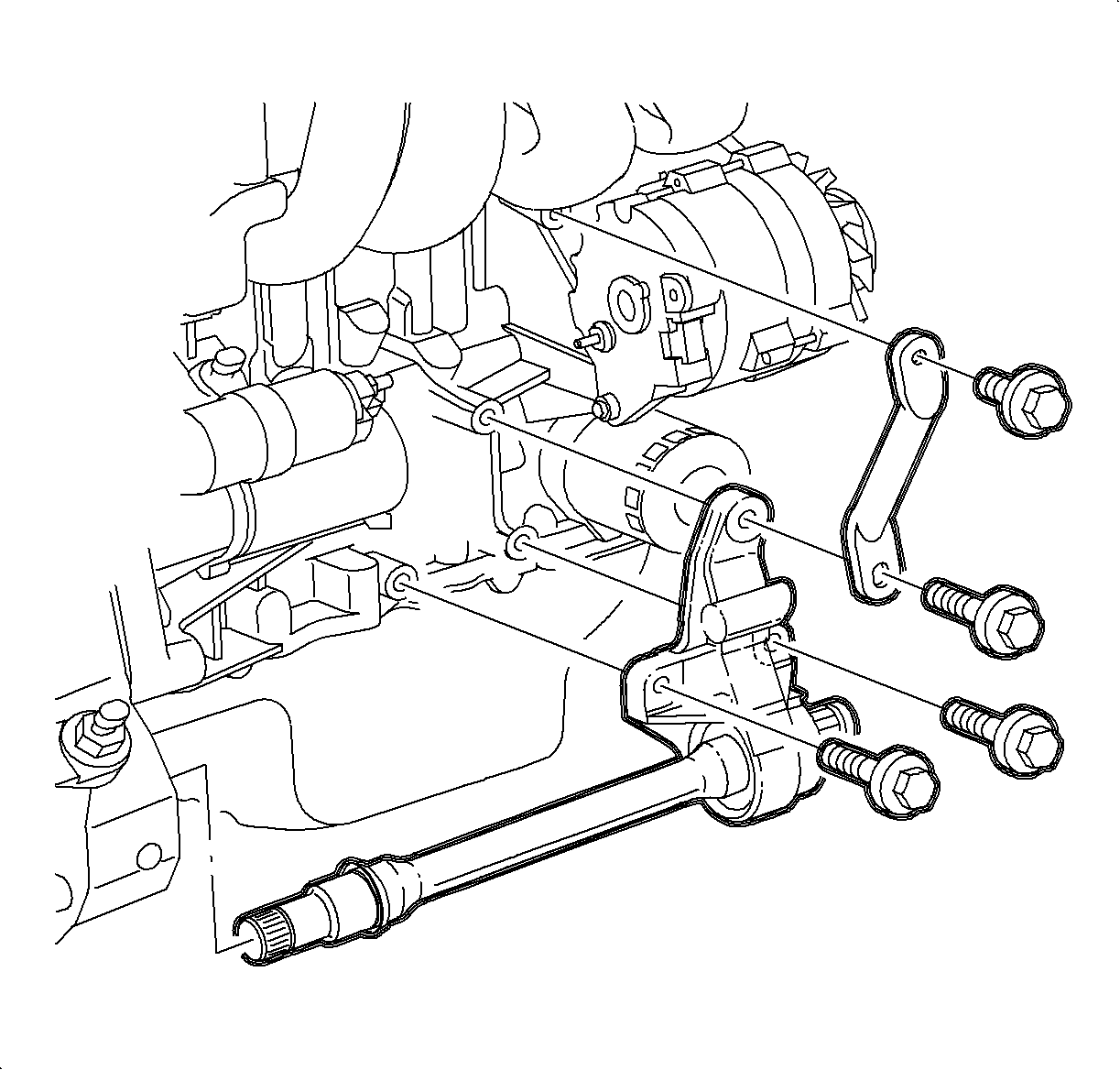
Notice: Be careful not to damage axle deflector ring.
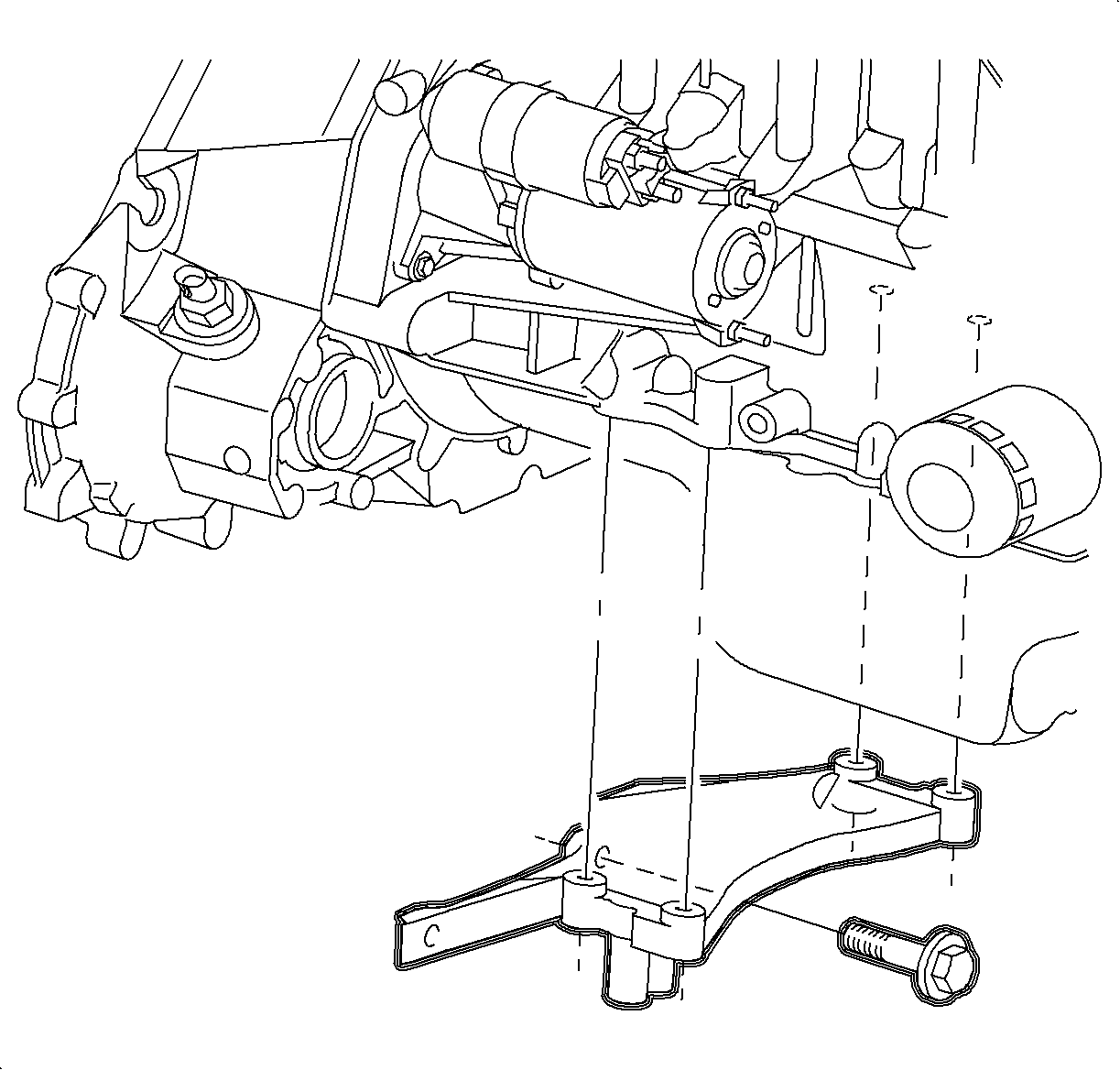
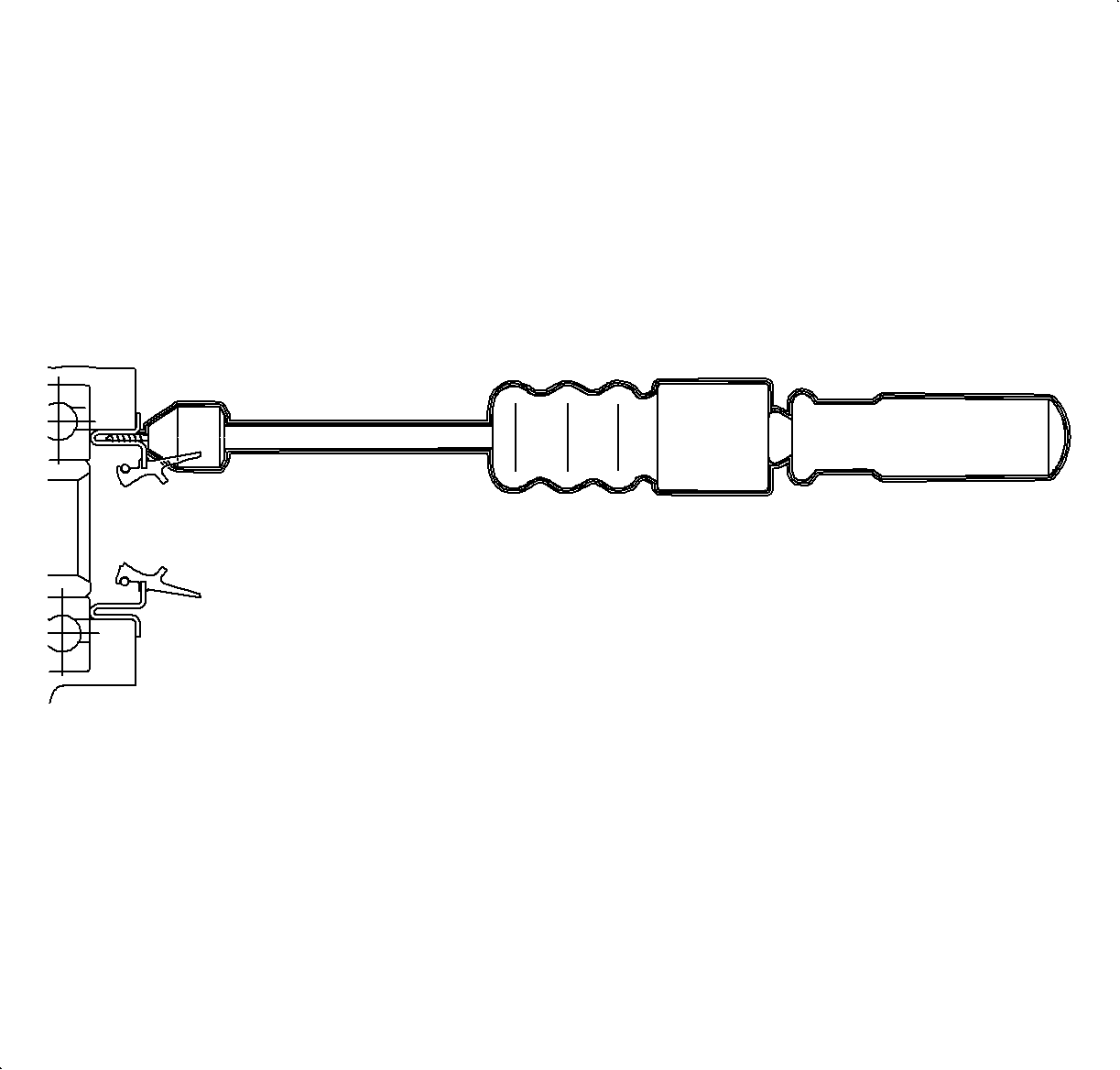
Remove the seal by threading the puller through the steel portion of the seal body as close to the outside diameter as possible.
Installation Procedure
- Clean the seal bore in the housing.
- Apply a small bead of LOCTITE 515® Gasket Eliminator sealant P/N 21005993 or equivalent on the diameter of the seal that presses into the converter housing bore.
- Use the SA9113T to install the seal. Place the seal on the tool and be sure to keep the seal lined up with the bore during installation.
- Install the flywheel dust cover if removed.
- Install the engine-to-transaxle stiffening brace and install the bracket to engine, and the brace to the transaxle bolts.
- Install the axle seal protector tool Axle Seal Protectors link (indicated by the arrow) inside seal. (Left side down, right side similar).
- Install the intermediate shaft into the transaxle.
- After the splines clear the seal protector, but before snapping the intermediate shaft into place, remove the seal protector tool.
- Position the intermediate shaft support and install the two bolts.
- Position the intake manifold support bracket and install the intake bracket to the intake manifold bolt.
- Install the intake manifold support bracket to the intermediate shaft support bolt.
- Install the right axle to the intermediate shaft.
- Clean and lubricate the ball joint threads.
- Position the ball joint into the steering knuckle.
- Install the nut to the lower ball joint and torque.
- If necessary, after torquing tighten the nut additionally to align the slot in the nut with the cotter pin hole in the ball joint and install a new cotter pin and bend the pin.
- Position the wheel onto the hub.
- Install the wheel nuts and torque in a crisscross pattern. Repeat torquing procedure to make sure the torque is correct.
- Install drain plug.
- Fill the transaxle to the proper level using Saturn Transaxle Fluid.
- Verify fluid level, refer to Transmission Fluid Check .
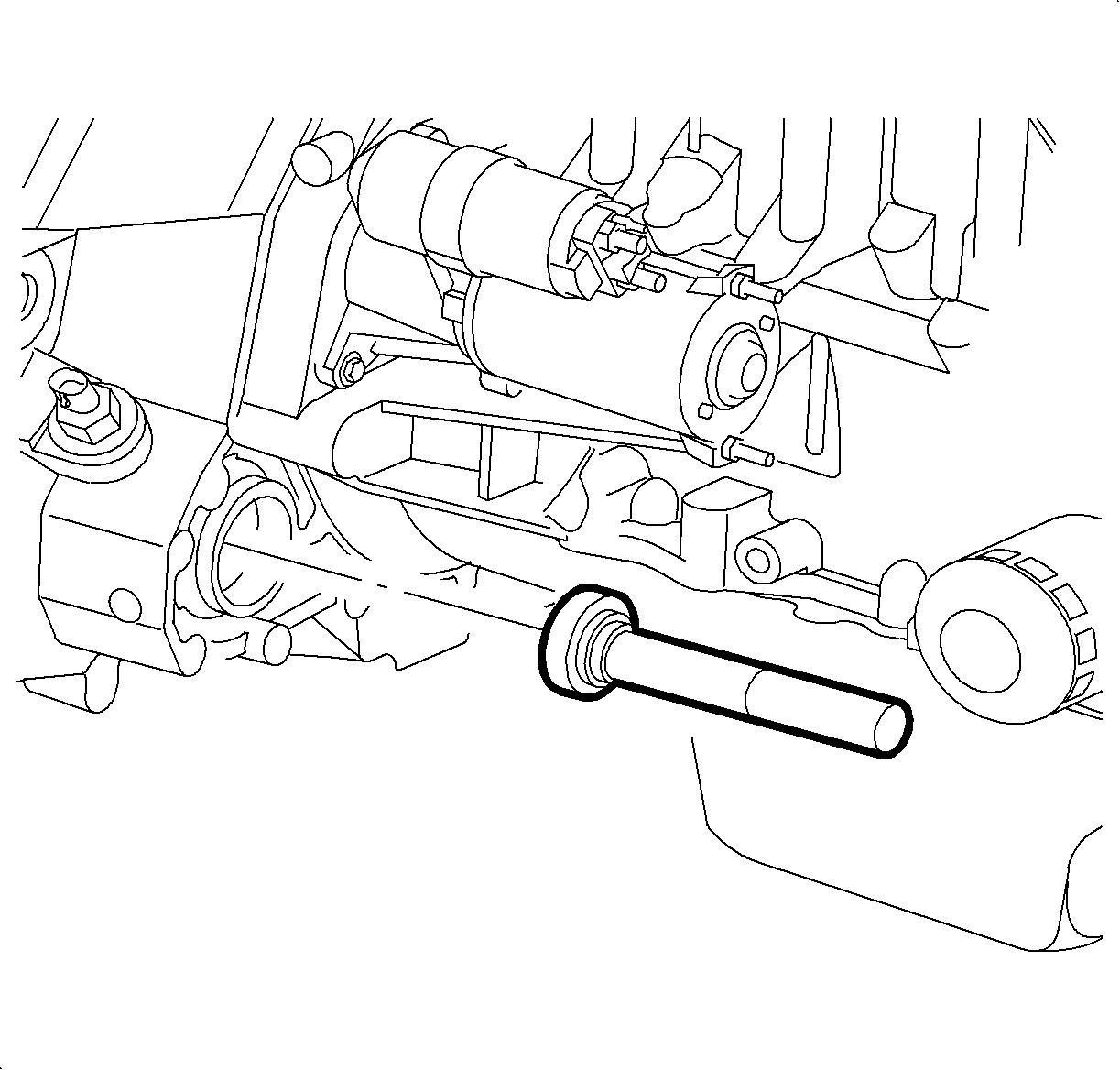
Notice: Prior to using Axle Seal Installer SA9113T inspect tool for any nicks or burrs that may damage seal lip.
Notice: Refer to Fastener Notice in the Preface section.
Tighten
Tighten the flywheel housing cover-to-converter
housing bolts to 11 N·m (8 lb ft).
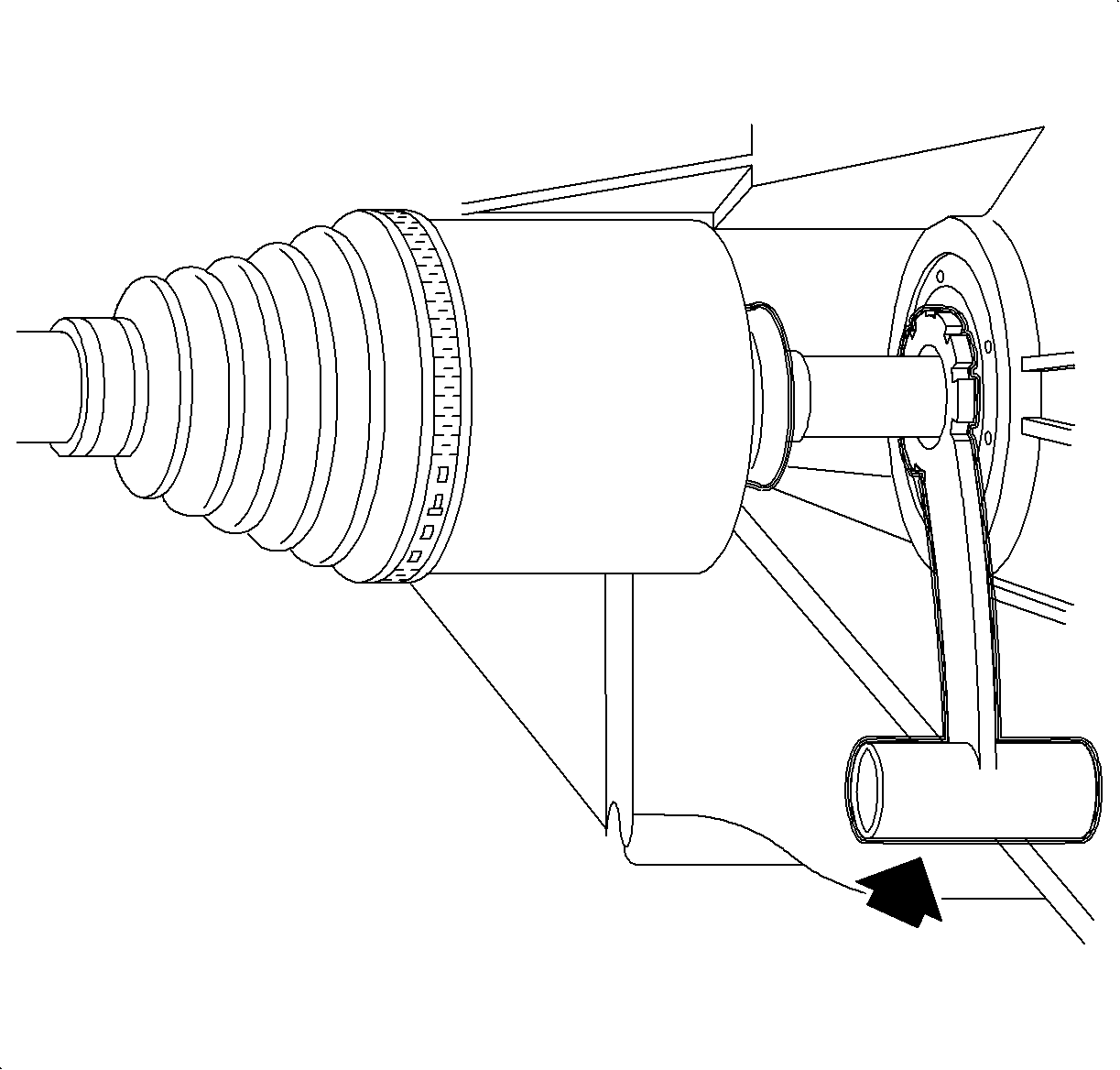
Tighten
Tighten the engine-to-transaxle stiffening brace
bolts to 54 N·m (40 lb ft).

Notice: Use caution not to damage axle seal when intermediate shaft is installed into transaxle.
Tighten
Tighten the intermediate shaft support bracket-to-engine
bolts to 54 N·m (40 lb ft).
Tighten
Tighten the intake manifold support bracket-to-intake
manifold bolt to 30 N·m (22 lb ft).
Tighten
Tighten the intake manifold support bracket-to-intermediate
shaft support bolt to 54 N·m (40 lb ft).

Notice: Take care not to damage rubber boot when installing ball joint to knuckle.
Tighten
Tighten the lower ball joint-to-steering knuckle
nut to 75 N·m (55 lb ft).

Notice: Before installing wheels, remove rust or corrosion from wheel mounting surfaces and brake rotors/drums. Failure to do so can cause wheel nuts to loosen in service.
Tighten
Tighten the wheel lug nuts to 140 N·m
(103 lb ft).
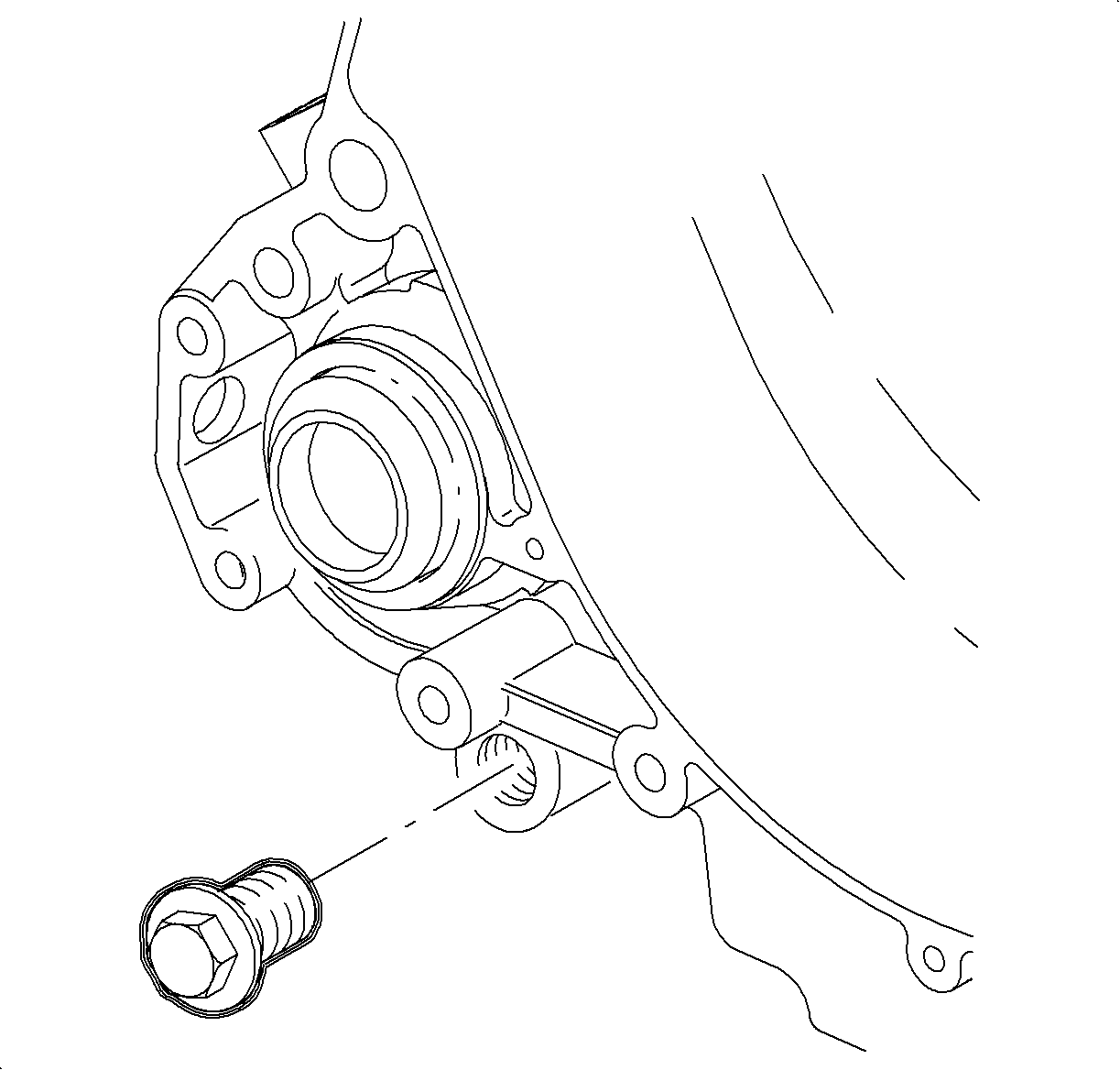
Important: Clean and lubricate the fastener with Saturn Transaxle Fluid. Wipe off excess fluid.
Tighten
Tighten the transaxle drain plug to 30 N·m
(22 lb ft).
Fluid change only: 3.8 L (4.0 qt).
Fluid change with a new filter: 4.0 L (4.2 qt).
Axle Shaft Oil Seal Replacement Left Side
Tools Required
| • | SA91112T Axle Seal Protectors |
| • | SA9113T Axle Seal Installer |
| • | SA9132S Lower Control Arm Ball Stud Separator |
| • | SA9133T Axle Seal Puller |
Removal Procedure
- Position the vehicle on the hoist.
- Raise the vehicle. Refer to Lifting and Jacking the Vehicle in General Information.
- Remove the left front wheel.
- Remove the cotter pin from the lower ball joint and discard. Loosen the nut and back the nut off until the top of nut is even with the top of threads.
- Separate the ball joint from the steering knuckle using SA9132S and remove the nut.
- Remove the left inner splash shield.
- Separate the axle from the transaxle using a large screw driver or appropriate pry bar and tie-up the shaft with safety wire.
- Remove the axle seal retainer snap ring.
- Remove the axle seal using SA9133T .
- Remove the seal by threading the puller through the steel portion of the seal body as close to the outside diameter as possible, right side shown, left side similar.

Caution: Refer to Vehicle Lifting Caution in the Preface section.
Remove the left splash shield.
Drain the transaxle fluid.


Notice: On ABS equipped vehicles, the outer CV joint has a speed sensor ring. Using the incorrect tool or procedure to separate the control arm from the knuckle can damage the ring, resulting in a loss of ABS operation.
Notice: Do not attempt to separate the joint using a wedge-type tool because seal may be damaged.
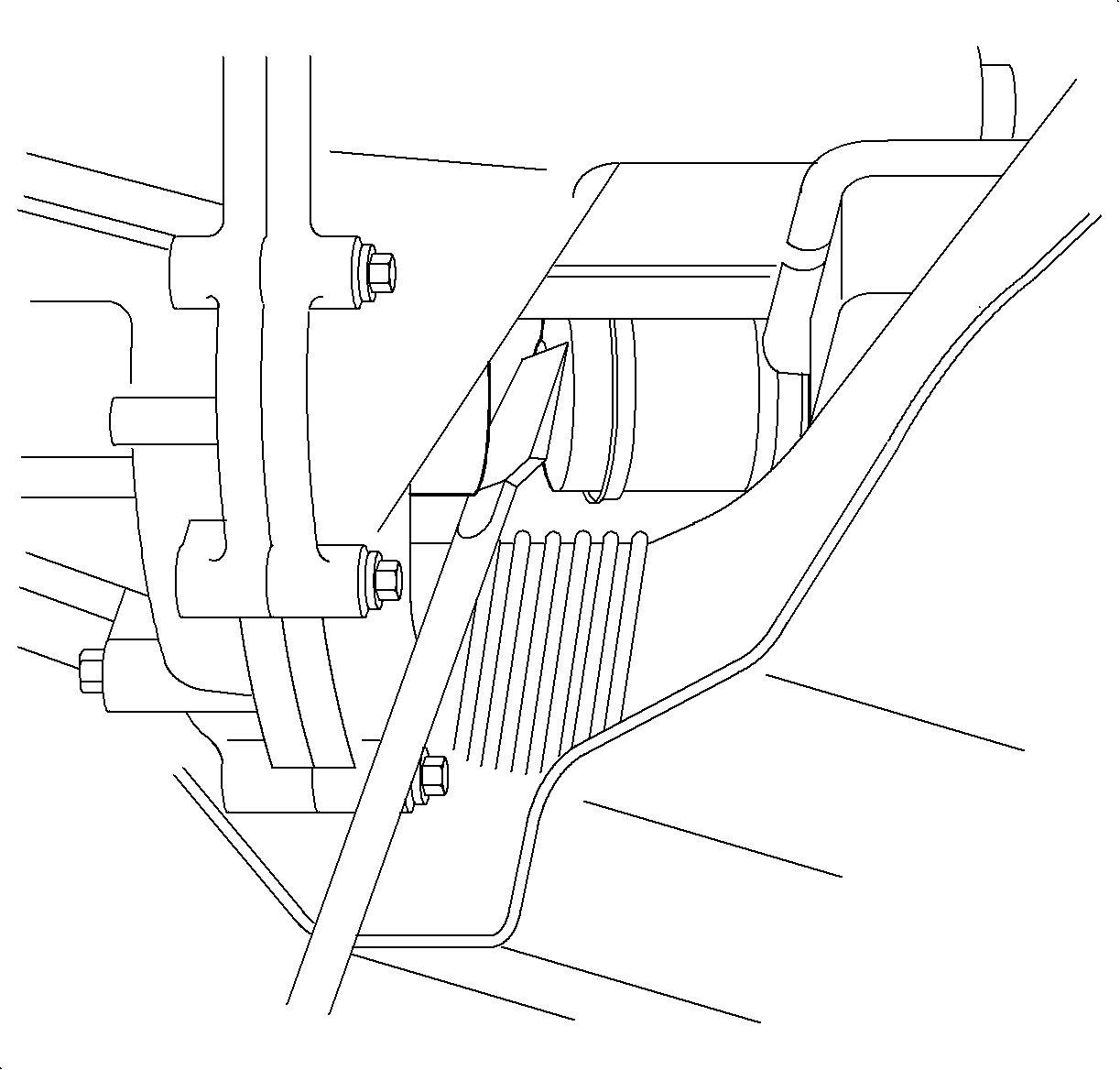
Notice: Be careful not to damage axle deflector ring.

Installation Procedure
- Clean the seal bore in the housing.
- Apply a small bead of Loctite 515® Gasket Eliminator sealant P/N 21005993 or equivalent on the diameter of the seal that presses into the case bore.
- Install the axle seal using SA9113T , Driver Handle included. Place the seal on the tool and insert in the transaxle. Make sure to keep the seal lined up with the bore during installation.
- Install the axle seal retainer, snap ring.
- Install the SA91112T , indicated by the arrow, inside seal.
- Install the axle into the transaxle.
- After the splines clear the seal protector but before snapping the axle into place remove the seal protector tool.
- Push axle all the way into transaxle.
- Clean and lubricate the ball joint threads.
- Position the ball joint into the steering knuckle.
- Install the nut to the lower ball joint and torque.
- After torquing, if necessary, tighten the nut additionally to align the slot in the nut with the cotter pin hole in the ball joint, and install the new cotter pin and bend the ends.
- Install the left splash shield.
- Position the wheel onto the hub.
- Install the wheel nuts and tighten in a crisscross pattern.
- Repeat the tightening pattern to be sure the torque is correct.
- Install drain plug.
- Fill the transaxle to the proper level using Saturn Transaxle Fluid. Verify the fluid level. Refer to Transmission Fluid Check .
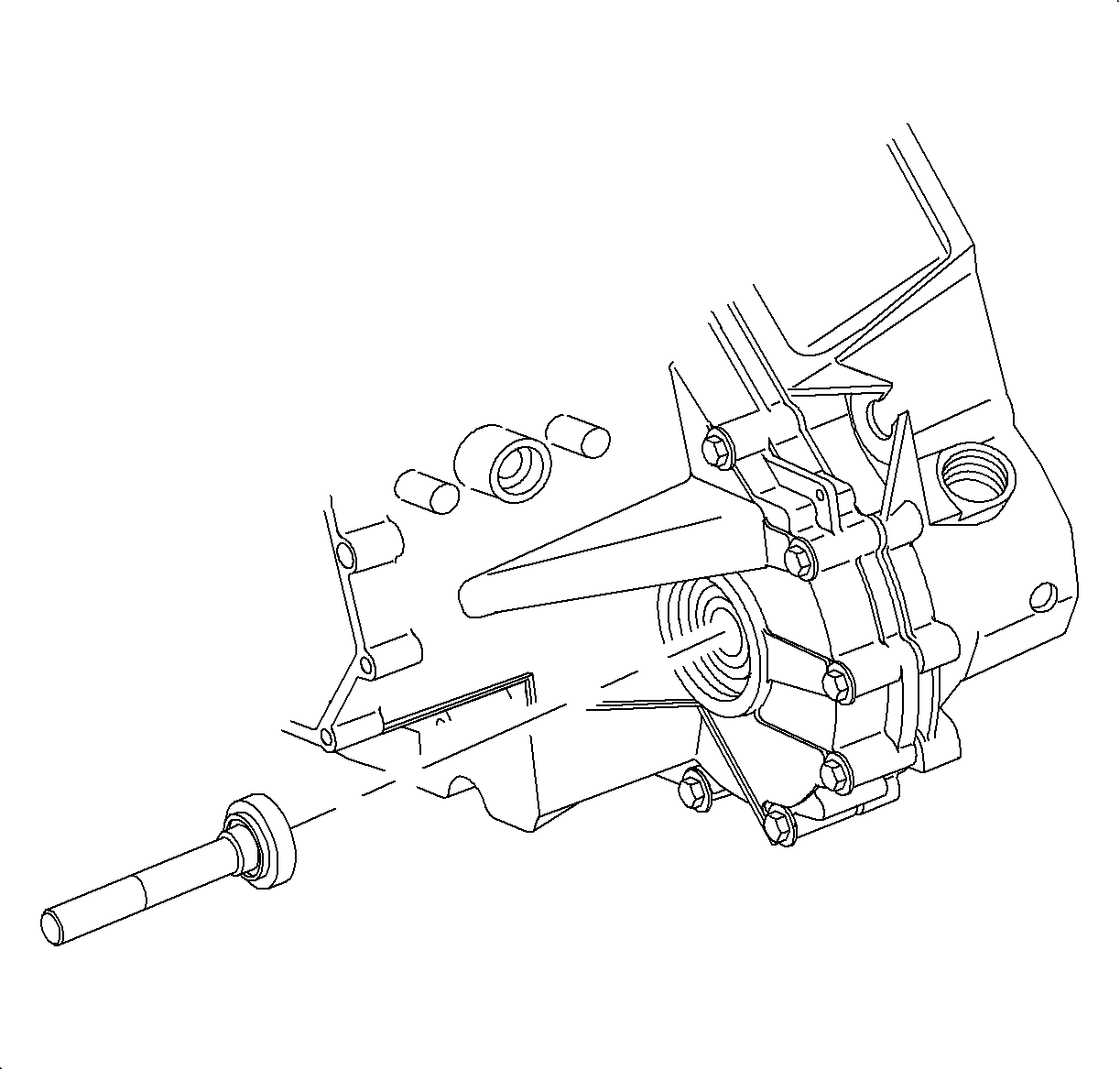
Notice: Be careful not to damage axle deflector ring.

Notice: Use caution not to damage axle seal when intermediate shaft is installed into transaxle.

Notice: Take care not to damage rubber boot when installing ball joint to knuckle.
Notice: Refer to Fastener Notice in the Preface section.
Tighten
Tighten the lower ball joint-to-steering knuckle nut to 75 N·m
(55 lb ft).

Tighten
Tighten the wheel lug nuts to 140 N·m (103 lb ft).
Important: Clean and lubricate the fastener with Saturn Transaxle Fluid. Wipe off the excess fluid.
Tighten
Tighten the transaxle drain plug to 30 N·m (22 lb ft).
Fluid change only 3.8 L (4.0 qt).
Fluid change with a new filter 4.0 L (4.2 qt).
